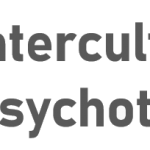Mindfulness Therapy
- Home
- Therapies
- Mindfulness Therapy
What are the Basics?
 How can we have more control over our thoughts in this time of information overload and anxiety? Exercising mindfulness can help discipline our minds in order to handle the current situation and focus on our connection and presence.
How can we have more control over our thoughts in this time of information overload and anxiety? Exercising mindfulness can help discipline our minds in order to handle the current situation and focus on our connection and presence.
Modern life involves a daily bustle of noise, distraction, and information overload. Our senses are constantly stimulated from every direction to the point that a simple moment of quiet stillness seems impossible for some of us. This continuous agitation hinders us from getting the most out of each moment, subtracting from the quality of our life.
Mindfulness linguistically is defined as “the quality or state of being conscious or aware of something,” and more specifically, “A mental state achieved by focusing one’s awareness on the present moment, while calmly acknowledging and accepting one’s feelings, thoughts, and bodily sensations, used as a therapeutic technique.”1In the context of modern psychology, mindfulness is “a tool we can use to examine conceptual frameworks.”2By watching closely how we think and feel, we gain the ability to alter our conceptual frameworks, or thought patterns, for our own benefit. When we are in a state of unmindfulness, we react to thoughts and emotions in knee-jerk fashion and let them lead us wherever they wish. By contrast, cultivating a state of mindfulness gives us the ability to follow or not follow our thoughts as we choose.
The Virtue of Mindfulness
Mindfulness Therapy is a form of metacognition (“awareness of one’s awareness”),a self-awareness of what is really going on inside one’s mind and heart. Cultivating mindfulness has been demonstrated to provide measurable health and wellness benefits. Numerous peer-reviewed studies show that mindfulness practices help to reduce stress, boost memory, enhance focus and concentration, decrease emotional reactivity, and improve personal relationships.
Mindfulness practices also promote empathy and compassion and are effectively used in clinical therapy.3The burgeoning field of mindfulness, in science and spiritual practice, is an exciting development that deserves critical investigation.
The focus of Mindfulness Therapy is on increasing our awareness of the thoughts, feelings, and actions that hinder our progress. When we are better able to do that, we can engage with those aspects of ourselves, learn to tweak our language, and choose how to respond.
What It Involves
Mindfulness therapy is a type of psychotherapy, that is a conversation-based intervention provided by our trained mental health professional to assess, diagnose, and treat dysfunctional thought patterns and behaviors. It involves conversations with one of our professionals that help the clients develop greater awareness of their thoughts and the world around them. This increased awareness helps them avoid destructive or automatic responses or habits.
Mindfulness Therapy may include this cognitive restructuring technique plus mindfulness meditation or other mindfulness practices. During this exercise, you are asked to follow three one-minute steps:
- Ask yourself, “How am I doing right now?” Focus on and identify the thoughts, feelings, and sensations that may come from this question.
- Bring your awareness to your breath and sit with it.
- Assess your physical sensations and how they are affecting the rest of your body.

